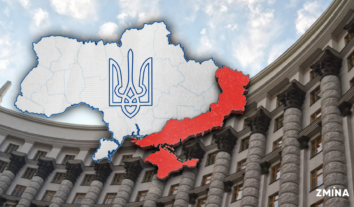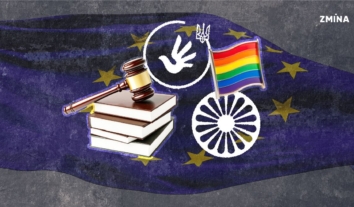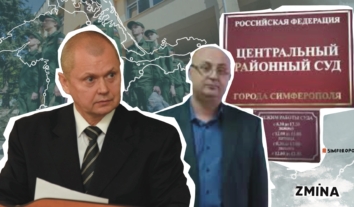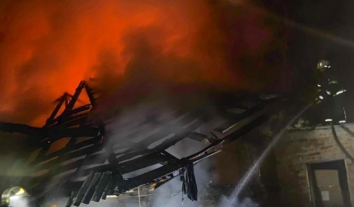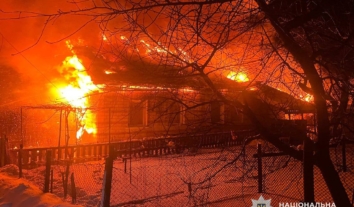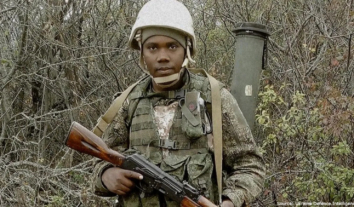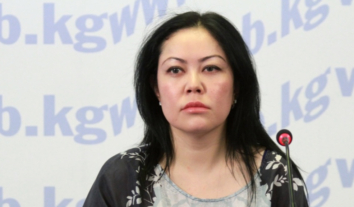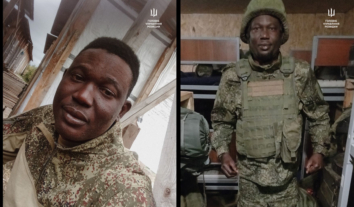How do Ukrainians see life in the occupied territories after liberation – a study
Most Ukrainians consider it important to regain the occupied territories and return the people who live there. After all, more than 80% of citizens in the government-controlled territory are aware that the occupation regime itself poses a threat to everyone living in the temporarily occupied territories. More than half of the citizens understood that the residents of the occupied territories had no choice and were forced to obtain Russian passports. At the same time, officials and police officers who worked during the occupation should be dismissed and brought to justice.
The results of a sociological study on the reintegration of the liberated territories and social cohesion in Ukraine evidence these and other trends in Ukrainians’ attitudes toward residents of the occupied territories, internally displaced persons, and citizens who have moved abroad.
The research was conducted by the Sociological Group “Rating” at the request of the School of Political Analysis of the National University of Kyiv-Mohyla Academy. From March 11 to March 16, 2024, sociologists interviewed 2005 respondents aged 18 and older in all regions except the temporarily occupied territories (TOT) of Crimea and Donbas and those areas where Ukrainian mobile communications were unavailable at the time of the survey.
Here are the main findings of the study.
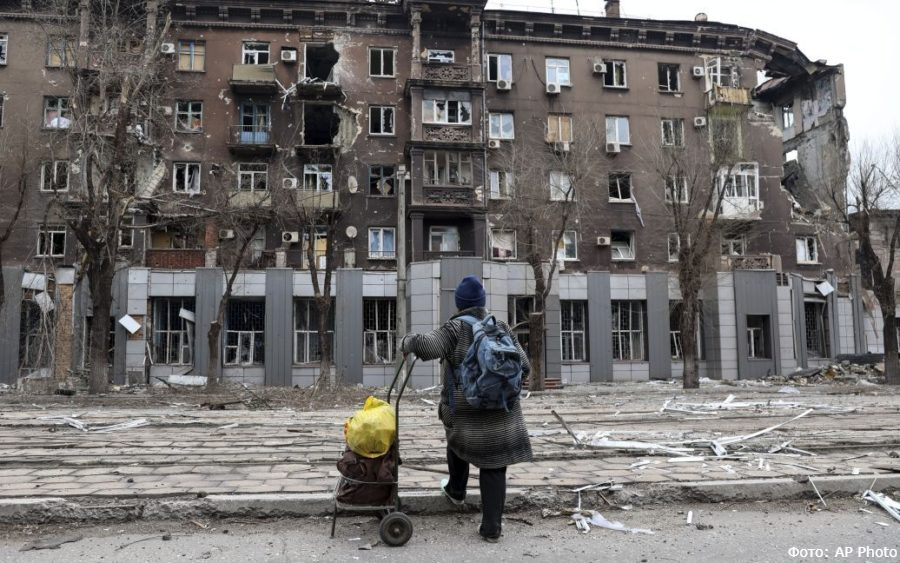
Sources of information about the life of people in the TOT
Most respondents (75%) receive information from the Ukrainian media. Less than half (41%) learn about life under occupation from relatives or friends in the TOT. Overall, 17% of Ukrainians reported having relatives in the TOT. 60% of respondents would like to receive more information about the daily life of TOT residents.
The study also found that 94% of respondents do not consume information from Russian media and telegram channels.
78% of citizens believe it is important to regain the occupied territories and return the people who live there. And for 91% of respondents, Ukrainian politicians and officials must remember the people under occupation.
Perception of life in occupation
More than 80% of Ukrainians realize that the occupation regime itself poses a threat to everyone living in the temporarily occupied territories. According to Anton Suslov, an expert at the School of Political Analysis at the National University of Kyiv-Mohyla Academy, the information received by citizens in the government-controlled territories is sufficient to understand the danger posed by the Russian occupation regime.
In addition, 58% of respondents believe that TOT residents had no choice and were forced to obtain Russian passports.
Onysiia Syniuk, an analyst at the ZMINA Human Rights Center, noted that judging by these statistics, respondents understand that Ukrainians in the occupied territories are living in an atmosphere of coercion and fear.
“Human rights activists are constantly talking about illegal detentions, enforced disappearances, torture in the occupied territories, and political persecution in the Autonomous Republic of Crimea. People understand that to survive in these territories, residents need, among other things, to obtain a Russian passport after the Russian Federation illegally incorporated these territories into its fold and fully extended its legal regime there. Without a Russian passport, people cannot access medical and social services. And school graduates will not receive secondary education certificates,” explained Onysiia Syniuk.
Attitudes toward IDPs, Ukrainians under occupation, and those staying abroad

The study also showed that Ukrainians have a much better attitude toward IDPs than toward people who remained under occupation, both after 2014 and after 2022. In particular, 13% of Ukrainians have a negative attitude toward fellow citizens who ended up in the occupied territory after February 24, 2022, and still live there.
Onysiia Syniuk believes that this result is partly due to citizens in the occupied territories who support the occupation and that people hear little about life under occupation directly from the residents of the temporarily occupied territories. At the same time, Syniuk notes the high rate of people who want to receive more information about everyday life in the occupation. She emphasizes the importance of such information and the role of communication from the state authorities.
In general, 33% have a positive attitude toward Ukrainians who left the country after the outbreak of war and are now abroad. 52% are neutral toward such fellow citizens, 13% – negative.
Anna Osypchuk, research director of the School of Political Analysis at the National University of Kyiv-Mohyla Academy, believes a split is brewing on this issue in Ukraine. The scholar notes the problematic consequences of playing with these feelings.
Restrictions for wartime collaborators
Sociologists have found a different attitude of Ukrainians toward police officers and rescuers who worked in the occupation. Thus, most respondents (56%) believe that all police officers who worked during the occupation should be dismissed without exception. At the same time, only 7% of respondents support the dismissal of rescuers.
26% of respondents believe that police officers should be allowed to work and that only those personally prosecuted for collaboration should be dismissed. 56% of respondents share the same position regarding rescuers. 13% believe that none of the rescuers should be fired.

However, 55% of respondents believe that all employees of the occupation media should be fired, while 37% are convinced that only the management of such media should be fired.
Anton Suslov, an analyst at the School of Political Analysis at the National University of Kyiv-Mohyla Academy, believes that Ukrainians’ opinions on this issue are still being formed.

The sociologists also found differences in positions regarding the dismissal of local administrations and utility companies. In general, 33% believe that utility workers who have worked in territories occupied since 2024 should be dismissed, 34% disagree with this, and 2% have not decided.
However, the overwhelming majority of respondents (about 80%) support the dismissal of middle managers of local occupation administrations, both those who have worked for the occupation forces since 2014 and those who held these positions after 2022.
“On the one hand, there is indeed an understanding of the differentiation between a local administration employee and a utility worker. On the other hand, the position of Ukrainians on this issue is still being formed. The state should decide as early as possible to communicate the state policy and prepare society for positions and decisions,” commented analyst Anton Suslov.
In addition, 45% of respondents called for dismissing all teachers in the territories occupied since 2022. 24% disagree with this step. The study found that 40% of respondents understand that after de-occupation, Ukraine will not have enough human resources to replace all teachers who worked during the occupation.

46% of Ukrainians believe that those citizens who distributed Russian humanitarian aid should be held accountable for this, while 27% disagree.
70% agree that exchanging those convicted of collaboration for Russia is acceptable. 17% disagree.
Most respondents (77%) are convinced that an individual approach should be applied to suspected collaborators with the occupiers in establishing responsibility for wartime collaboration. 11% disagreed.

In general, 59% disagreed that the community in the liberated territories had the full right to lynch people who supported Russia with words or actions. 18% strongly agreed, and 8% rather agreed.
Anna Osypchuk is convinced that if people see effective procedures for punishing crimes, there will be fewer people willing to commit lynching.
Onysiia Syniuk noted that the difference in the respondents’ views on the responsibility of public utilities, police officers, and rescuers in the temporarily occupied territories demonstrates an understanding of the standards of international humanitarian law on what life should be like during the occupation.
“According to these standards, when the occupation continues, people in such a territory should continue to live and receive vital services. Power grids, sewage, street cleaning, and medical care should be maintained there, and therefore, these categories of workers should continue to work. The survey also showed the demand of society. But, unfortunately, our legislation on collaboration activities does not consider these circumstances,” explained Onysiia Syniuk.
The human rights activist called the different attitude to the responsibility of rescuers and police understandable because police officers carry out illegal orders of the occupation authorities and implement Russian legislation in the occupied territories. However, according to international standards, the occupying power must maintain law and order in the occupation.
In general, Onysia Synyuk believes that Ukrainian legislation should reflect the responsibility of a person in the occupation authorities through the following assessment: what position the person held in the occupation, to what extent their activities harmed national security or the residents of the TOT, and with what intentions the person did it.
Accountability for mobilization in the occupation
Respondents were divided on the issue of easing the responsibility of those mobilized to illegal armed groups in Luhansk and Donetsk regions and the Russian army who did not commit serious crimes. Overall, 40% agree that they should be released from liability. Strongly disagree – 27% and rather disagree – 14%.
However, the general majority (67%) believes that when deciding on the issue of justice, Ukraine should take into account the fact that such a citizen was forced to join illegal groups or the occupation army.

“If we look at the respondents’ vision of an individual approach in such cases, taking into account coercion, this is a rational and balanced approach. I am pleased that it is shared by the expert community and the citizens of Ukraine,” commented Anton Suslov.
Onysiia Syniuk confirms that Russian occupying forces recruit citizens under various circumstances. Human rights activists know of an example when a man expressed pro-Ukrainian views, which led to Russian special services visiting his home and forcing him to record a propaganda video with an apology in which he allegedly recanted his words. As punishment, he was also forced to join an armed group, from which he later surrendered to the Ukrainian side.
“Such cases must be considered taking into account several circumstances and factors, including the coercion, the intent of the person’s enlistment, what the person did while in such a formation, and whether the person surrendered voluntarily,” the human rights defender emphasized.
As reported, in February 2024, human rights activists published 11 priority steps to protect human rights in the context of large-scale armed aggression for 2024. One of the steps for the Cabinet of Ministers in this list is to define a national strategy for restoring state power and reintegration of the population of the de-occupied territories of Ukraine.
Human rights activists note that, despite more than ten years of war with Russia, Ukraine has not developed policies at the state level to ensure the effective restoration of government institutions in the territories that have been under prolonged occupation and the reintegration of the population of the de-occupied territories.
The state should take a system of actions to form a regulatory framework before de-occupation so that residents of the temporarily occupied territories and other territories of Ukraine clearly understand what their future will be after the liberation of the territories from Russian occupation. The state must also determine what the policy will be after de-occupation about documents issued during the occupation, including court decisions, documents certifying property rights, whether measures will be taken to cleanse the government (lustration), and how the social, educational, and medical systems will work in the liberated territories.
This project publication was created with the support of the Partnership Fund for a Resilient Ukraine (PFRU), funded by the governments of Canada, Finland, the Netherlands, Sweden, Switzerland, the United Kingdom, and the United States of America.













